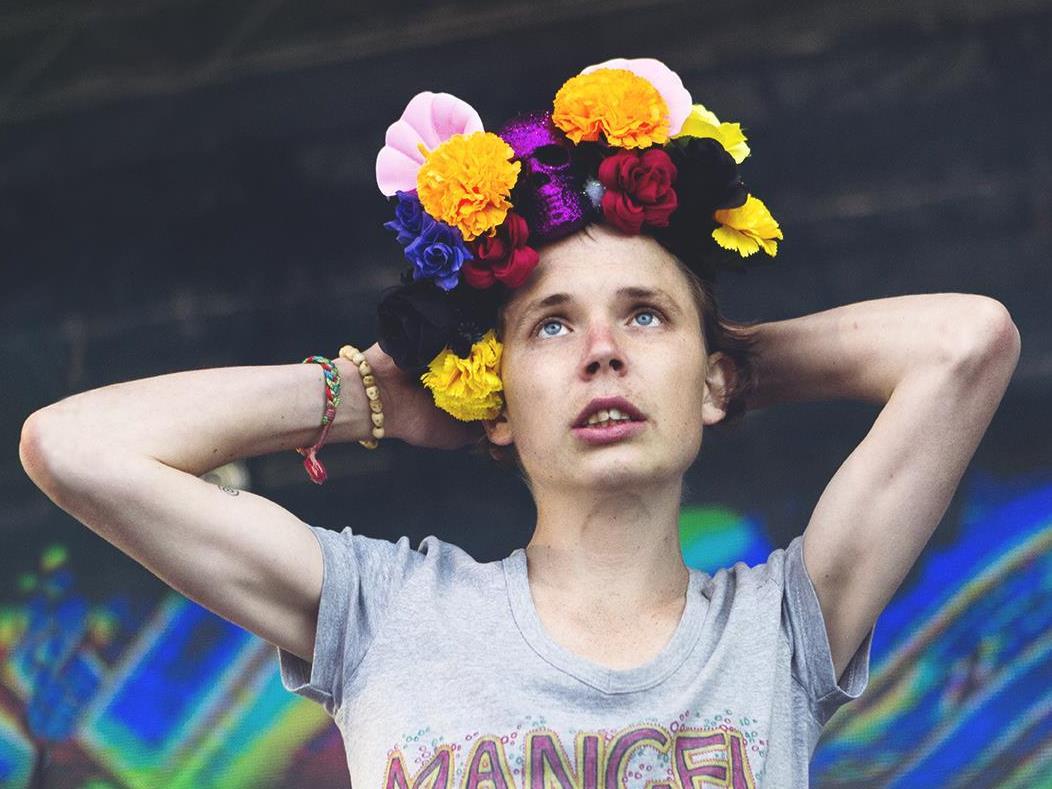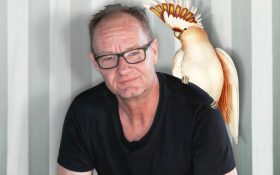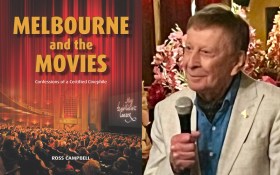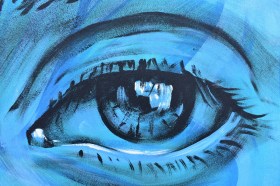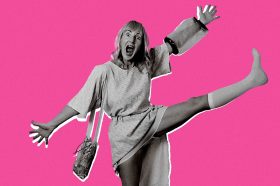Image Nick Allbrook via Club Cultural Matienzo
Nick Allbrook, frontman for Pond, explores how rather than make a creative vacuum, distance from cultural capitals and national hubs of creative practice can promote creative freedom, an essay from Griffith Review 47: Looking West dedicated to Western Australia.
I used to dream about living in a cultural powerhouse like Paris or Berlin or New York, but after spending time in these places I’ve realised that the emptiness and isolation of Perth – boredom to some – was a far better environment for creativity. The ‘cultural capitals’ are so rich in art and wonder that it can feel pointless to add to it.
Maybe just being in those ‘cultural capitals’ fills us up with wonder? Strolling through Berlin at night, ducking into a bar with fish nailed to the roof, skipping across the cobblestones for some cheap beers in a record shop in a Russian caravan in an abandoned peanut factory…that kind of stuff fills the romantic void. Having a Ricard and a few Gitanes on the terrasse of Aux Folies; stumbling through Camden after a lock-in at the Witch’s Tit or the Cock’n’Balls or the Cancerous Bowel or whatever you call it; recollecting a possible conversation with Jah Wobble over a pint…Perth? It has no secret tunnels to romantic fulfilment.
For me, music and art have always been a way to manufacture that romance lacking in upper-middle-class Western Australia. To be honest, if I had lived in New York I probably would’ve been so damn hung-over – or busy ensuring that I would be later – that a whole lot less creation would’ve gone on.
Mundane and discouraging places like Perth create a vicious Darwinism for creatively inclined people, where survival of the fittest is played out with swift and unrepentant force and the flippant or unpassionate are left behind, drowning in putrid mind-clag.
You have to really need it, and without the mysterious and poetic benefits of a vibrant city culture this has to come from deep inside. Amber Fresh, otherwise known as Rabbit Island, is one person who produces constant streams of music, drawings, essays, poems, calendars, videos and photos from her home. She fills her world with little pieces of homemade, lo-fi, photocopied beauty and magic. They don’t have funding or precedent or material ambition – and the result is something fresh and original. Mei Saraswati does the same thing, although completely different styles of music. She has produced, mixed, mastered and illustrated scores of albums in her bedroom and then released this other-worldly electronic R’n’B brilliance onto the internet with no fanfare, simply to turn around and start making more. These are just two examples. There are many more.
Somehow by being a cultural long-drop, Perth lit a fire under my arse. In more scholarly terminology this could be called a ‘spirit of negation’ – a margarine version of the same zeitgeist that has catalysed most worthwhile movements throughout history, from dadaism to punk to all the intellectual and artistic wonders of The Netherlands freshly unchained from their dastardly Spanish overlords.
Being isolated spatially and culturally – us from the city, Perth from Australia and Australia from the world – arms one with an Atlas-strong sense of identity. Both actively and passively, originality seems to flourish in Perth’s artistic community.
As far as genres go, our music ‘scene’ in Perth was an anomaly. A mad mosaic of groups and artists only held together by gallant separation from conventional Perth society. Nick Odell, the drummer of cease and Sonny Roofs, still has a poster for a gig at Amplifier Bar that I remember as a kind of microcosmic Woodstock – a tactile realisation of all the beauty and communion we cherished. The line-up included us (Mink Mussel Creek), cease (aforementioned stoner/doom/drone lords), Sex Panther (punk-party queens), Oki Oki (Nintendo synth pop) and Chris Cobilis (experimental laptop noise music). I think most members of the bands ended up on stage at more than one time, wrapped in Cobilis’ wires or yelling into a madly effected microphone in front of cease. I certainly did. Nowhere else would such a ridiculously mismatched line-up consider themselves a tight community. We all partied together, played together and are still friends.
I think this spirit is lacking in a lot of the more culturally enlightened parts of the world.
Maybe in these vibrant communities the countercultural idea is so entrenched it becomes capitalist orthodoxy and loses its edge. It is subjected to the rationality it once challenged. In the cultural capitals – Paris, Berlin, New York – creativity and original thinking are accepted and valued parts of mainstream life.
In Perth they are not.
Paris has over four hundred streets named after artists and writers, and this honour is not restricted to the most unobtrusive or patriotic. Rue Albert Camus, Rue Marcel Duchamp and the recently proposed Place Jean-Michel Basquiat, for example, show the state glorifying revolutionaries, absurdists, libertines and a gay, heroin-using, Haitian–American graffiti artist. Today we can stroll along the verdant Boulevard Auguste-Blanqui, named after the man who led the uprising of the Paris Commune. A revolutionary, a prisoner, an anarchist. In modern terms: a terrorist.
There, art is a basic fact of everyday life, while in Perth it is an anomaly hidden in garages and living rooms – deep beneath a conservative fishbowl of productivity. So, all things considered, ‘cultural capitals’ should be havens for art and music, and Perth should not. The romance just seeps into the pores, ja?
I always thought this before I left Western Australia, but have since found it to be otherwise. I asked a young photographer and artist in Amsterdam about the music scene there and her reply was wholly negative. A lot of Parisians seem to feel the same way. I look back on my time in Perth and think about the huge number of brilliant musicians and artists who I saw and knew, often not in official venues but in backyards or sheds or the abandoned entertainment centre (yes, cease). Perhaps with the freedom – almost expectation – to create, revel and throw it all around the streets, it all just gets a bit boring.
Like much good art, it doesn’t really ‘mean’ anything, so writing an essay about it is an odd activity. The experience of a city or community varies so much that it can never be defined while it is still occurring. When it’s actually happening, a ‘scene’ is not really a ‘scene’ – it’s completely intangible and only coagulates into a definitive and convenient ball when history puts it in a cage, when someone from the outside looks in and decides there’s something shared between a bunch of vaguely artistic fools. I guess that’s what I’m doing now, which is pretty ridiculous seeing as nothing is finished and the Perth artistic community is so ethereal that it couldn’t and shouldn’t be labelled at all.
This article is an edited extract from the Griffith Review Looking West: the Western Australia edition edited by Julianne Schultz & Anna Haebich. Available from the Griffith Review store.
